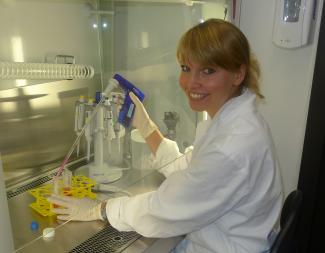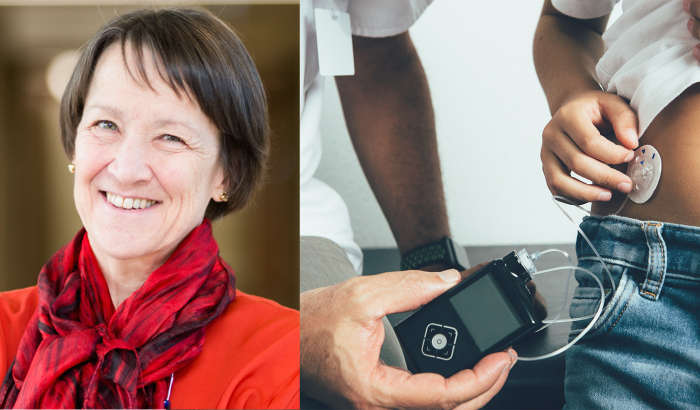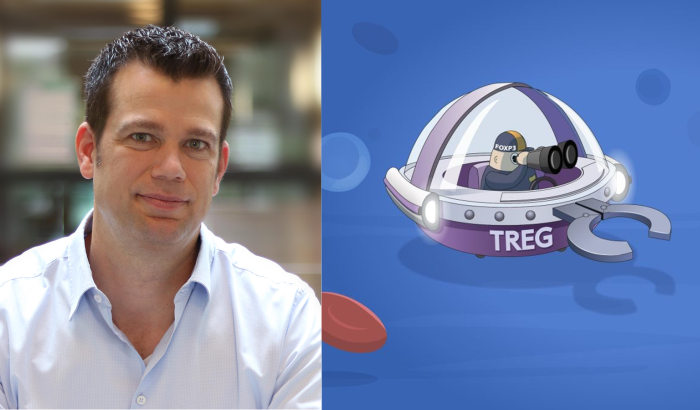
(C) LCSB
The ‘Fondation du Pélican de Mie et Pierre Hippert-Faber’ has announced a new Post-doc grant for Luxembourgish scientists returning to the Grand-Duchy.
“In Luxembourg we have had a long tradition to study abroad and then return home to start our professional career. However, finding a job in Luxembourg with a biomedical research degree is not that easy, as these positions are still few and far between,“ explains University Fundraiser Philippe Lamesch: “Mr Pierre Hippert, founder of the Pelican Foundation, wants to specifically support young Luxembourgish researchers by offering grants to scientists who graduated abroad and want to return to Luxembourg.”
This new prize, named ‘Pelican Award for Postdoctoral Researchers‘ will be awarded for the first time in the fall of 2016 and will fully cover the awardee’s salary for a period of at least 2 years. In order to increase the chance to find the perfect candidate, calls have been launched for two different projects. One project focuses on Parkinson’s disease research. The candidate will carry out transcriptomic and epigenomic analysis of induced pluripotent stem cell (iPSC)-derived neuronal cells originating from Parkinson’s patients with defined genetic backgrounds. The other project is seeking a researchers interested to carry out data acquisition and machine learning based analysis of human clinical and cohort data in the context of Cardiovascular Disease.
The candidate will need to have a PhD and a working knowledge of English, German, French and Luxembourgish. The deadline for applications via the University of Luxembourg’s recruitment portal is 11 September 2016.
To apply for Parkinson's disease project, click here to be redirected to the University's recruitment portal.
To apply for the cardiovascular disease project, click here.
New Post-doc grant in addition to travel grants for PhD students
Pierre Hippert, founder of the Pelican Foundation, is no stranger to the University of Luxembourg: Since 2011, his foundation has awarded annual travel grants to PhD Students of the University’s Doctoral School of Systems and Molecular Biology. These grants enable students to attend conferences around the world, meet with international collaborators and participate in trainings abroad.
Dr. Katrin Hemmer received such a travel grant in 2013. She is a graduate student in Prof. Jens Schwamborn’s Development and Cellular Biology Laboratory at the University of Luxembourg’s Centre for Systems Biomedicine (LCSB). Her work focuses on the transplantation of different kinds of stems cells into the brain of Parkinson animal models. The goal of her project is to prove the therapeutic potential of these cells for cell replacement therapies with the hope to cure Parkinson’s disease.
“My entire lab benefitted from Mr Hippert’s generous donation”
Kathrin used the Pelican funds to attend a specific scientific workshop on SeeDB in Japan. SeeDB is a process where the whole mouse brain is rendered transparent, with its three-dimensional complexity of fine wiring and molecular structures remaining completely intact. This technique allos to visualize the entire neuronal circuitry of a mouse brain on a whole-brain scale, without having to cut it into slices, which represent an important step in neuroscience.
“Our research field is very competitive, and it is therefore extremely important for us to keep up with the newest techniques in this field. Thanks to the Pelican Foundation, I was able to participate in workshops taught by world leaders in brain research, “ says Dr. Katrin Hemmer, who has implemented the SeeDB technique and taught it to her colleagues in Luxembourg upon her return. “That way, my entire lab benefitted from Mr Hippert’s generous donation”, she concludes.
Given the positive feedback from many of the previous Pelican grant recipients regarding this prize, the Foundation chose to continue to award annual Pelican Grants for PhD students in parallel to the new Pelican Award for postdoctoral researchers. The next call for Pelican travel grants for students will be in awarded this fall.
Author: LCSB/University of Luxembourg
Photo: LCSB
Infobox
The sheltered foundation under the aegis of the Fondation de Luxembourg seeks to provide long-term support in the fields of scientific and academic research, as well as in the arts and letters. More information about the foundation on the website of the Fondation de Luxembourg.
One of its primary objectives is to participate in the financing of research projects in biomedicine or biotech, preferably at the University of Luxembourg. By providing scholarships or purchasing equipment the foundation seeks to promote research activities in Luxembourg and develop the reputation of the University of Luxembourg in this field. More information on the website of the Fondation de Luxembourg.







